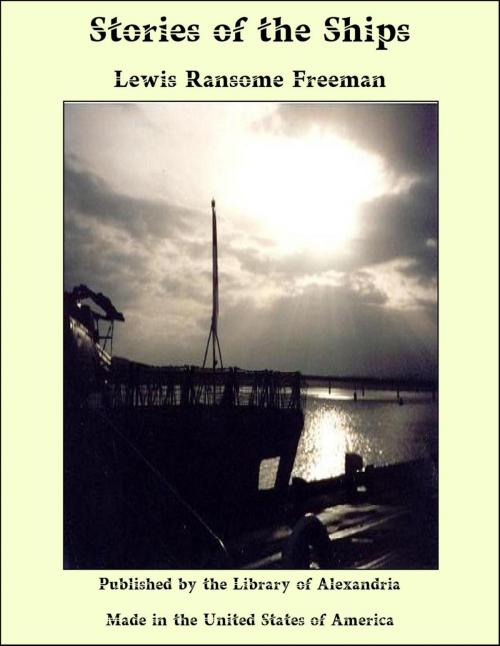| Author: | Lewis Ransome Freeman | ISBN: | 9781465575777 |
| Publisher: | Library of Alexandria | Publication: | March 8, 2015 |
| Imprint: | Language: | English |
| Author: | Lewis Ransome Freeman |
| ISBN: | 9781465575777 |
| Publisher: | Library of Alexandria |
| Publication: | March 8, 2015 |
| Imprint: | |
| Language: | English |
Of the countless stories of naval action which I have listened to in the course of the months I have spent with the Grand Fleet, I cannot recall a single one which was told as the consequence of being asked for with malice aforethought. I have never yet found a man of action who was enamoured of the sound of his own voice raised in the recital of his own exploits, and if there is one thing more than another calculated to throw an otherwise not untalkative British Naval Officer into a state of uncommunicativeness, in comparison with which the traditional silence of the sphinx or the proverbial close-mouthedness of the clam are alike sheer garrulity, it is to ask him, point blank, to tell you (for instance) how he took his submarine into the Baltic, or what his destroyer did at Jutland, or how he fought his cruiser at Dogger Bank, or something similar. The quiet-voiced but always interesting and often dramatic recitals of such things as these which I have heard have invariably been led up to quite incidentally—at dinner, on the bridge or quarter-deck, around the wardroom fire, or through something else that has just been told. Several times I have found in officers' diaries—little records never meant for other eyes than those of the writers' own friends or families—which have been turned over to me to verify some point regarding which I had inquired, laconic references to incidents and events of great human and even historic interest, and one of the most amusing and dramatic yarns I have ever listened to was told me in a "kite" balloon—plunging in the forty-mile wind against which it was being towed like a hooked salmon—by a man who had assured me before we went up that nothing really exciting had ever fallen to his experience. It was in this way—an anecdote now and then as this or that incident of the day recalled it to his mind—that Captain —— came to tell me the story of the Cornwall during those eventful early months of the war when he commanded that now famous cruiser. He mentioned her first, I believe, one night in his cabin when, referring to a stormy midwinter month, most of which had been spent by his Division of the Grand Fleet on some sort of work at sea, I spoke of the "rather strenuous interval" we had experienced.
Of the countless stories of naval action which I have listened to in the course of the months I have spent with the Grand Fleet, I cannot recall a single one which was told as the consequence of being asked for with malice aforethought. I have never yet found a man of action who was enamoured of the sound of his own voice raised in the recital of his own exploits, and if there is one thing more than another calculated to throw an otherwise not untalkative British Naval Officer into a state of uncommunicativeness, in comparison with which the traditional silence of the sphinx or the proverbial close-mouthedness of the clam are alike sheer garrulity, it is to ask him, point blank, to tell you (for instance) how he took his submarine into the Baltic, or what his destroyer did at Jutland, or how he fought his cruiser at Dogger Bank, or something similar. The quiet-voiced but always interesting and often dramatic recitals of such things as these which I have heard have invariably been led up to quite incidentally—at dinner, on the bridge or quarter-deck, around the wardroom fire, or through something else that has just been told. Several times I have found in officers' diaries—little records never meant for other eyes than those of the writers' own friends or families—which have been turned over to me to verify some point regarding which I had inquired, laconic references to incidents and events of great human and even historic interest, and one of the most amusing and dramatic yarns I have ever listened to was told me in a "kite" balloon—plunging in the forty-mile wind against which it was being towed like a hooked salmon—by a man who had assured me before we went up that nothing really exciting had ever fallen to his experience. It was in this way—an anecdote now and then as this or that incident of the day recalled it to his mind—that Captain —— came to tell me the story of the Cornwall during those eventful early months of the war when he commanded that now famous cruiser. He mentioned her first, I believe, one night in his cabin when, referring to a stormy midwinter month, most of which had been spent by his Division of the Grand Fleet on some sort of work at sea, I spoke of the "rather strenuous interval" we had experienced.















